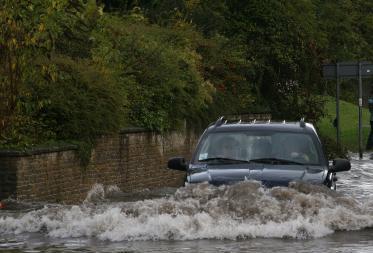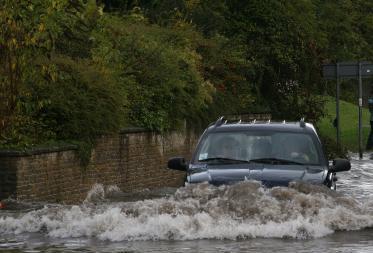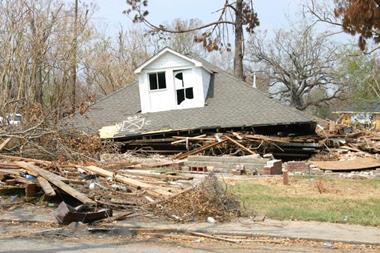The summer floods were a “wake-up call” for the UK; immediate action is needed
The summer floods were a “wake-up call” for the country, says the interim report of the Independent Review commissioned by the Government to learn lessons from the events.
Asked on BBC Radio 4's Today programme if flooding was as serious as terrorism, Sir Michael said: "I think it is. It's obviously very different but we want the same levels of performance and reaction that we have with terrorism events."
It urges immediate action in a number of areas by government departments and agencies, local authorities and other stakeholders, as well as members of the public, to ensure we are not caught out again by events like the flooding of June and July.
Sir Michael Pitt, chairman of the South West Strategic Health Authority, was asked by ministers in August to identify the lessons to be learned from the emergencies.
He was also asked to make recommendations that would help the country adapt and deal more effectively with flooding on the unprecedented level of last summer.
The Review makes 15 “urgent recommendations” to be implemented as soon as possible to reduce the impact of any flooding that might occur in the near future.
These cover the areas of managing flood risk, groundwater monitoring, local and national planning and response, public information, and public preparedness.
The report is written from the standpoint of flood victims, highlighting the devastation to lives and livelihoods and the necessity for the authorities to reduce the risk and impact of future events.
“It's obviously very different but we want the same levels of performance and reaction that we have with terrorism events
Sir Michael Pitt
It includes contributions from affected communities and businesses, and key stakeholders, such as the emergency services, local authorities, and public and regulatory bodies.
The floods were the result of the wettest summer since records began, and were of a different scale and type to previous events – the majority being due to surface water flooding, for which no warning system was in place – with drainage systems being overwhelmed.
It could have been even worse. “The country was fortunate that the impact of the emergencies were not much more severe,” says Pitt.
Pitt concludes that the country was not as well prepared as it should have been. He warns that “flood risk is here to stay,” and the signs are that similar extreme events are likely, underlining the need for better preparation.
A clear strategy and action plan should be developed to deliver the provisions of the Climate Change Bill and support adaptation to more frequent extremes of weather.
Flood legislation should be streamlined and updated to clarify responsibilities, address all sources of flooding, and reflect the modern, risk-management approach.
With around two-thirds of the floods caused by surface water, there needs to be a new emphasis on guarding against this type of flooding.
Sir Michael says the Environment Agency is best placed to develop a national approach to managing surface water flood risk, including development of surface water mapping and warning tools; and it should no longer be a right of householders and businesses to lay impermeable surfaces as they wish.
“It's crucial that we go beyond rhetoric and start putting an effective risk management programme into place
Dr Claire Souch
In January, a three-month consultation period will begin. The additional evidence gathered will be fed into the recommendations of the final report, to be published next summer.
Responding to the interim report of the Pitt Review on flood risk, Dr Claire Souch, director of model management at Risk Management Solutions (RMS), said:
"While it is encouraging that the report recognises the need to address surface water flood risk, there seems to be insufficient focus on flooding from small rivers and tributaries. Responsibility for these 'ordinary watercourses' should be assumed by the Environment Agency rather than local authorities, so the risk is managed more consistently and effectively.
“This year's flooding was partly caused by small rivers overflowing, so it would be a glaring oversight to exclude this factor in any flood risk management plan.
"Many lessons can be learned from the insurance industry's approach to estimating flood risk, and the tools it employs could be put to much wider use in emergency planning. The report highlights the importance of understanding how a single flood can cause widespread devastation, as well as the impact of simultaneous events.
“The insurance industry is years ahead in taking this 'event-based' approach to risk management and could be a key player in developing the report's recommendations into realistic plans together with the Government and Environment Agency.
"Flood risk in the UK is an unfortunate reality, and we welcome the increased attention that this report brings to the subject. But it's crucial that we go beyond rhetoric and start putting an effective risk management programme into place, bringing together the expertise that exists in this area. With the rapid growth in housing and development showing no signs of abating, and the daunting prospects of future climate change, flood risk should be a major consideration in planning across the country."




















No comments yet